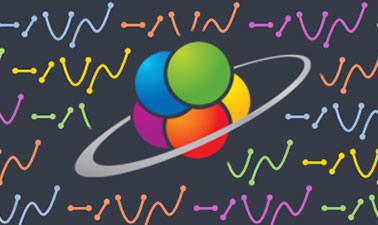
We live in a world of numbers. You see them every day: on clocks, in the stock market, in sports, and all over the news. Algebra is all about figuring out the numbers you don't see. You might know how fast you can throw a ball, but can you use this number to determine how far you can throw it? You might keep track of stock prices, but how can you figure out how much money you've made (or lost) in the market? And you may already know how to tell time, but can you calculate at what times a clock's hour and minute hands are exactly aligned? With algebra, you can answer all of these questions, using the numbers you already know to solve for the unknown. Algebra is an essential tool for all of high school and college-level math, science, and engineering. So if you're starting out in one of these fields and you haven't yet mastered algebra, then this is the course for you!
Read more
We live in a world of numbers. You see them every day: on clocks, in the stock market, in sports, and all over the news. Algebra is all about figuring out the numbers you don't see. You might know how fast you can throw a ball, but can you use this number to determine how far you can throw it? You might keep track of stock prices, but how can you figure out how much money you've made (or lost) in the market? And you may already know how to tell time, but can you calculate at what times a clock's hour and minute hands are exactly aligned? With algebra, you can answer all of these questions, using the numbers you already know to solve for the unknown. Algebra is an essential tool for all of high school and college-level math, science, and engineering. So if you're starting out in one of these fields and you haven't yet mastered algebra, then this is the course for you!
We live in a world of numbers. You see them every day: on clocks, in the stock market, in sports, and all over the news. Algebra is all about figuring out the numbers you don't see. You might know how fast you can throw a ball, but can you use this number to determine how far you can throw it? You might keep track of stock prices, but how can you figure out how much money you've made (or lost) in the market? And you may already know how to tell time, but can you calculate at what times a clock's hour and minute hands are exactly aligned? With algebra, you can answer all of these questions, using the numbers you already know to solve for the unknown. Algebra is an essential tool for all of high school and college-level math, science, and engineering. So if you're starting out in one of these fields and you haven't yet mastered algebra, then this is the course for you!
In this course, you'll be able to choose your own path within each lesson, and you can jump between lessons to quickly review earlier material. AlgebraX covers a standard curriculum in high school Algebra I, and CCSS (common core) alignment is indicated where applicable.
Learn more about our High School and AP* Exam Preparation Courses
What you'll learn
- How to add, subtract, multiply, and divide positive and negative integers, decimals, and fractions
- How to evaluate powers and roots, and simplify expressions with exponents
- How to solve single-variable and multi-variable equations and inequalities
- How to graph lines and inequalities, using both slope-intercept and point-slope form
- How to graph quadratics, and solve for their roots using the quadratic formula
What's inside
Learning objectives
- How to add, subtract, multiply, and divide positive and negative integers, decimals, and fractions
- How to evaluate powers and roots, and simplify expressions with exponents
- How to solve single-variable and multi-variable equations and inequalities
- How to graph lines and inequalities, using both slope-intercept and point-slope form
- How to graph quadratics, and solve for their roots using the quadratic formula
- How to add, subtract, multiply, and divide positive and negative integers, decimals, and fractions
- How to evaluate powers and roots, and simplify expressions with exponents
- How to solve single-variable and multi-variable equations and inequalities
- How to graph lines and inequalities, using both slope-intercept and point-slope form
- How to graph quadratics, and solve for their roots using the quadratic formula
Good to know
Save this course
Reviews summary
Introductory algebra course with engaging assignments
Activities
Career center
Teacher
Actuary
Data Scientist
Software Engineer
Financial Analyst
Project Manager
Quantitative Analyst
Risk Manager
Economist
Market Researcher
Systems Analyst
Operations Manager
Business Analyst
Operations Research Analyst
Statistician
Featured in The Course Notes


Reading list
Share
Similar courses
OpenCourser helps millions of learners each year. People visit us to learn workspace skills, ace their exams, and nurture their curiosity.
Our extensive catalog contains over 50,000 courses and twice as many books. Browse by search, by topic, or even by career interests. We'll match you to the right resources quickly.
Find this site helpful? Tell a friend about us.
We're supported by our community of learners. When you purchase or subscribe to courses and programs or purchase books, we may earn a commission from our partners.
Your purchases help us maintain our catalog and keep our servers humming without ads.
Thank you for supporting OpenCourser.



